Written by Nancy Stone
NWTA’s Trail Sustainability Institute held our monthly Trail School on February 7th at Rocky Point. Keeping to our Covid-19 guidelines, 10 Trail Stewards arrived to learn the fundamentals of sustainable trail maintenance while enjoying a rare sunny day in the mossy forest.
Trail School is split into two distinct types of learning: classroom discussion and hands-on work. In the classroom, we circle up and talk about safety practices while working in the forest, trail tools, and their uses and hold discussions on what it means to build and maintain sustainable trails.
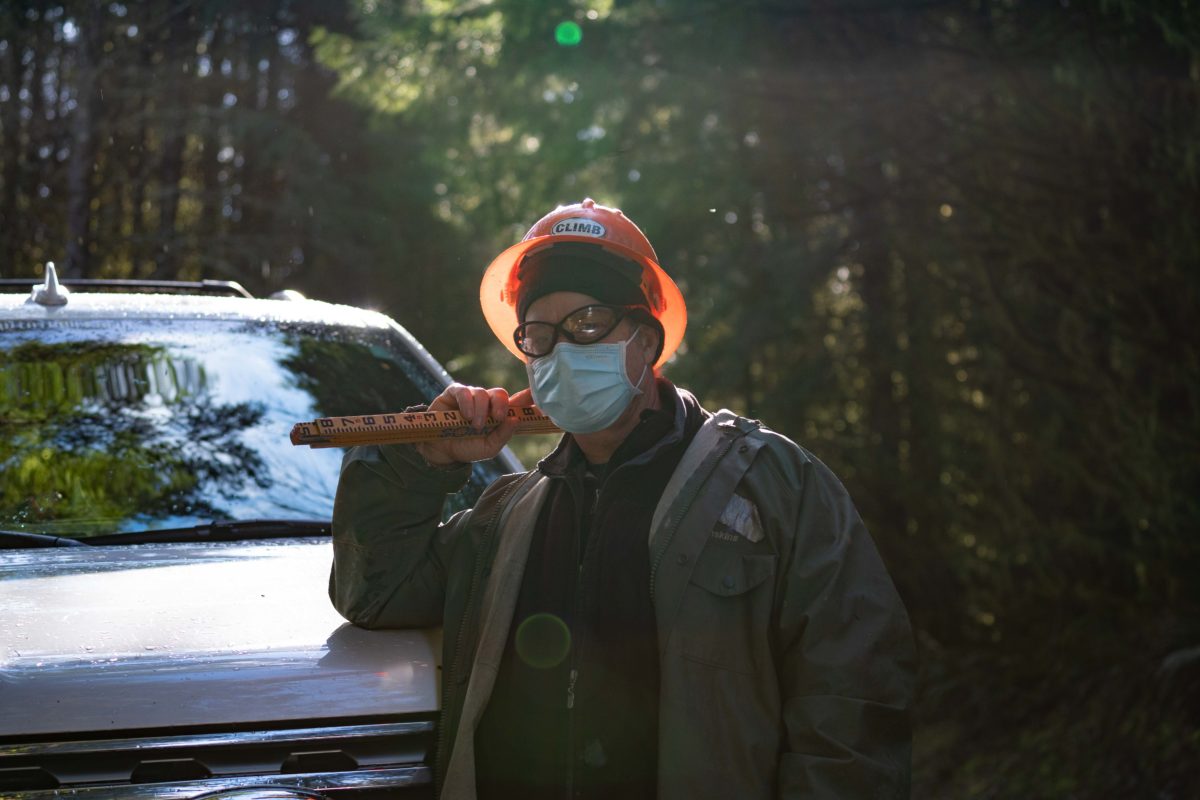
As we move into the hands-on part of the training session, we turn our talk into action. Understanding the impact our rainy NW climate has on our trails leads us to create an eye for mitigating water flow. Participants learned how trails are designed to quickly shed rainwater from the trail to prevent erosion and ‘mucky’ trails. Since we are in the middle of our rainy season, we took the opportunity to study the forest floor to see what the water is doing and where it is going. This better informs us how to keep it moving off the trail.
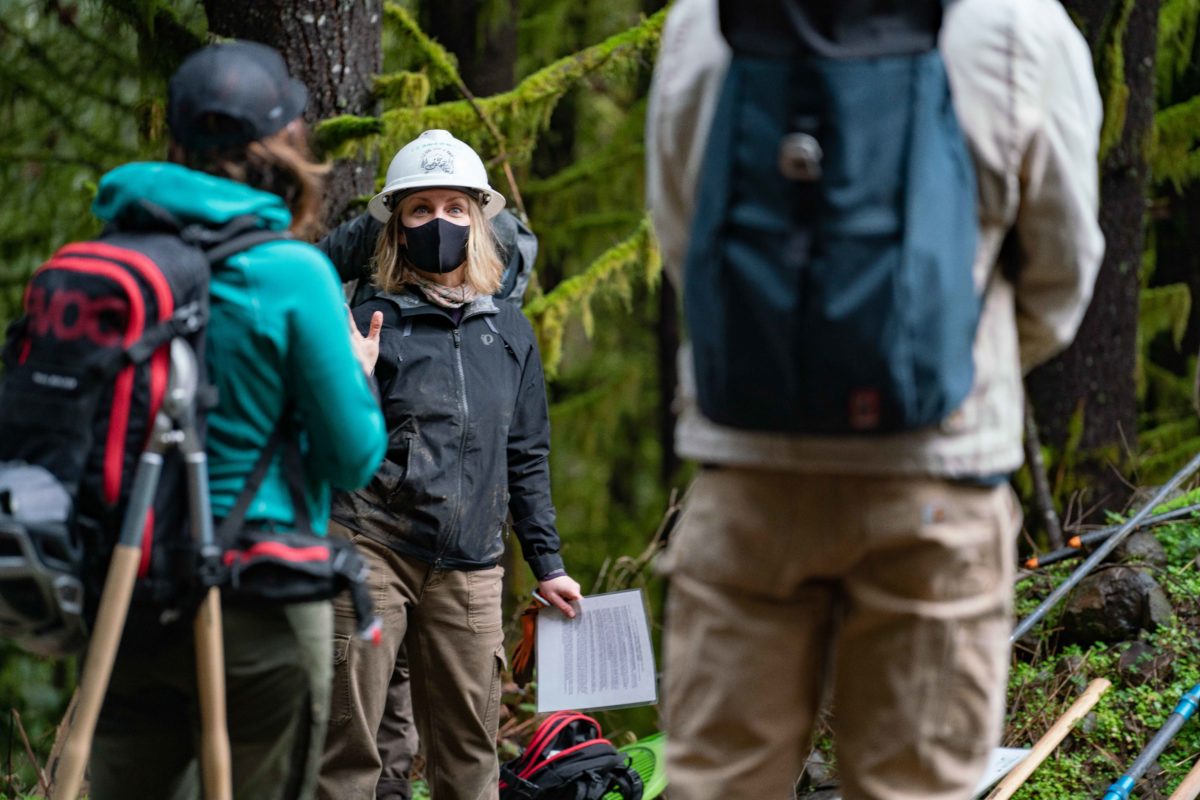
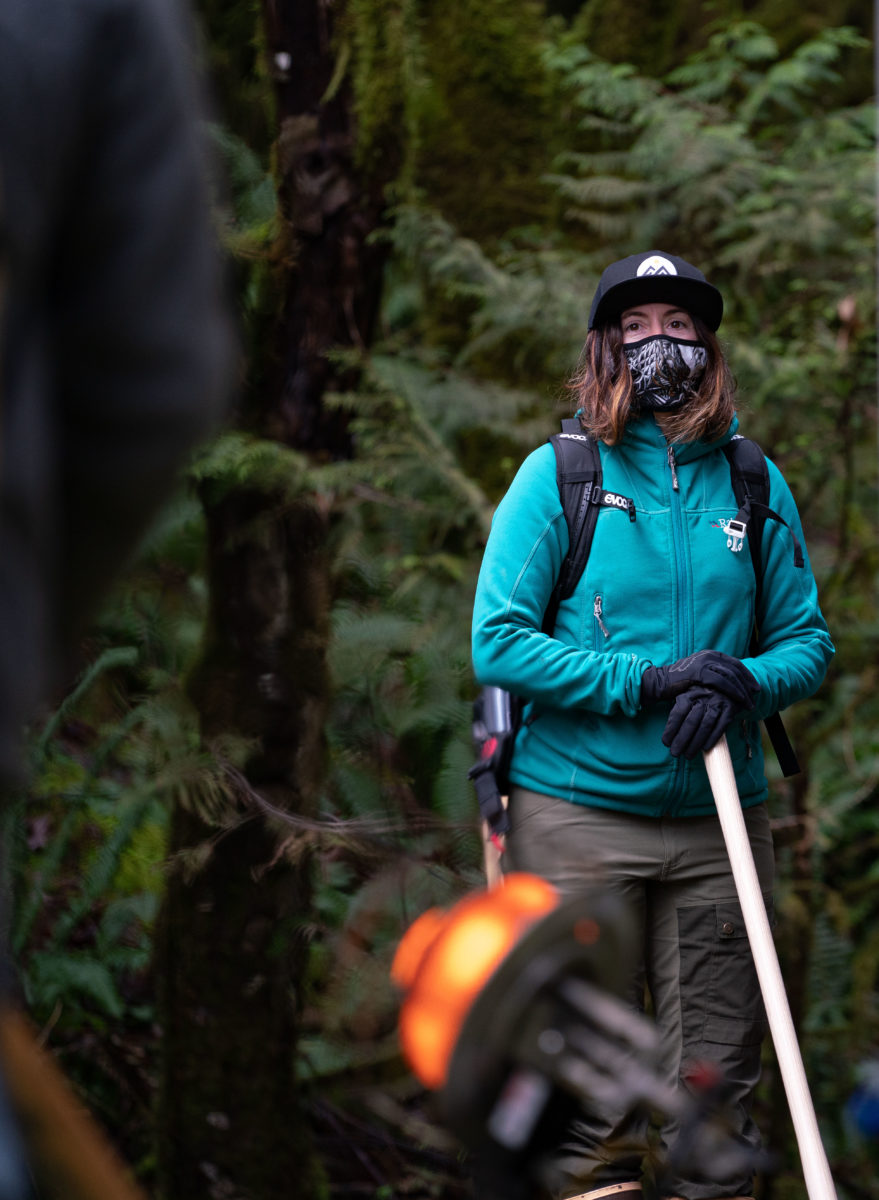
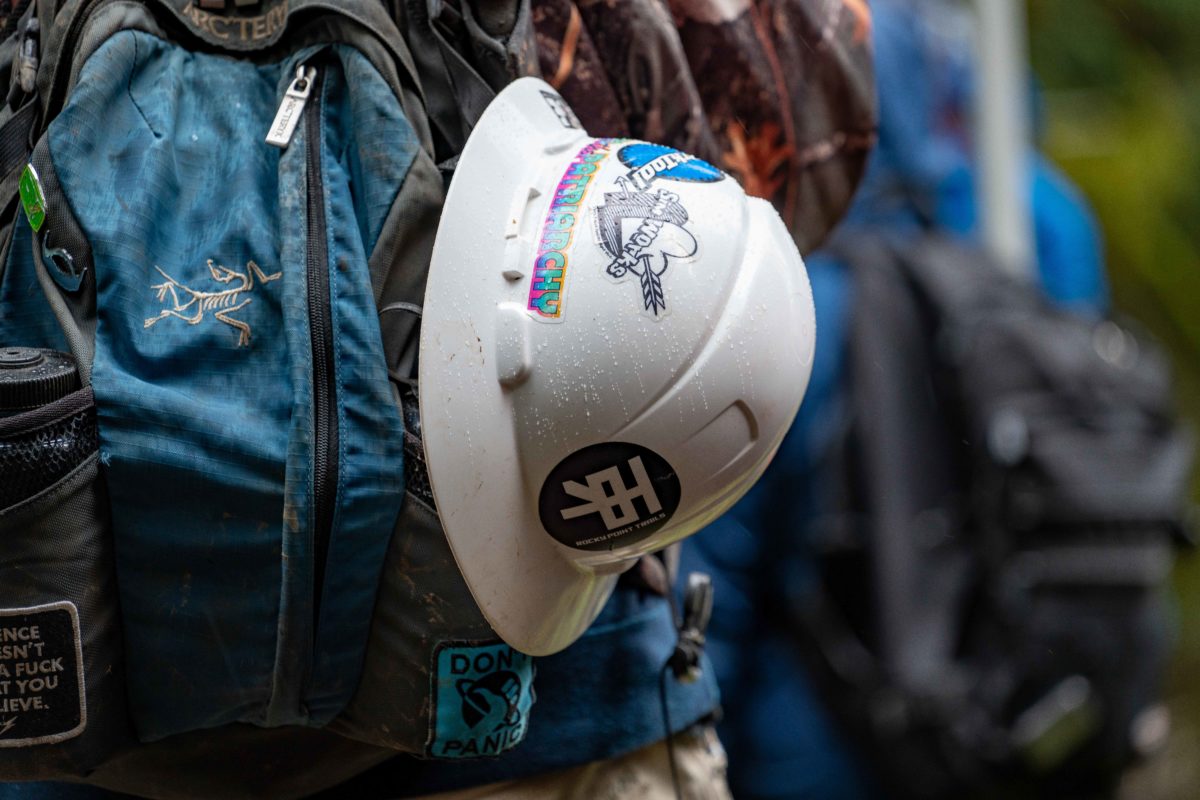
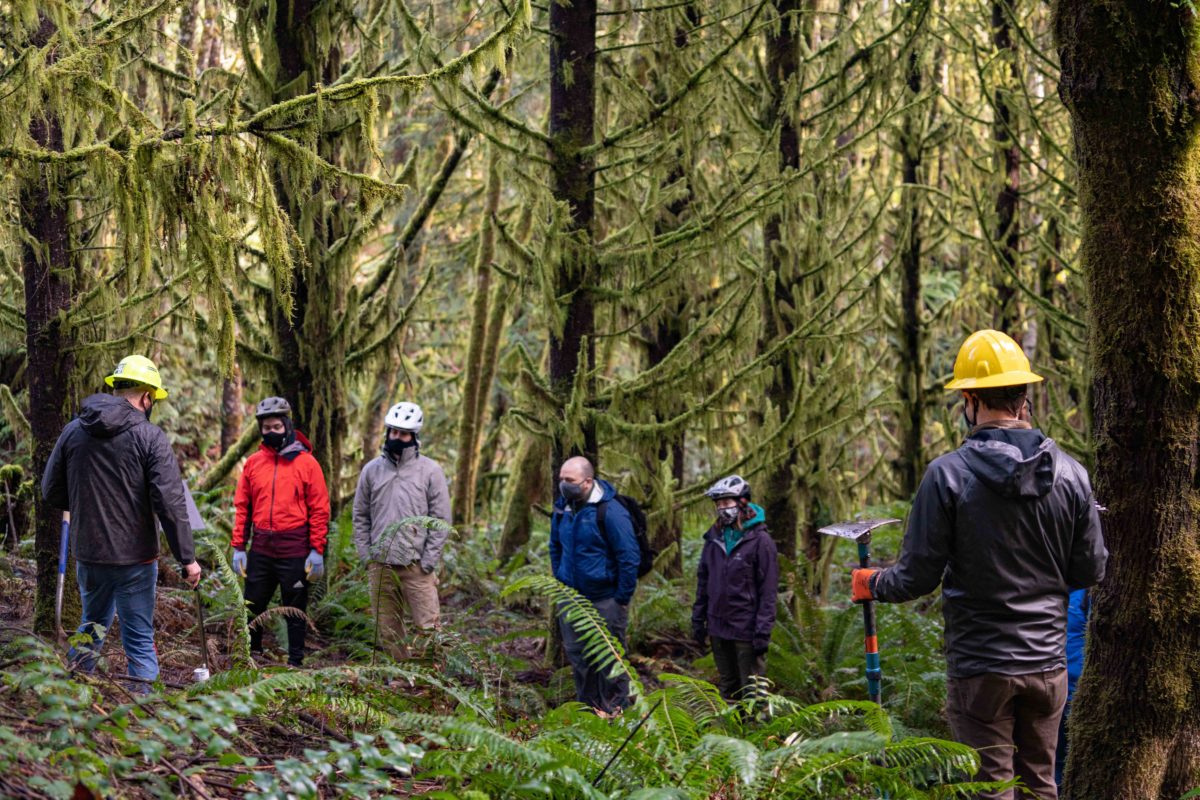
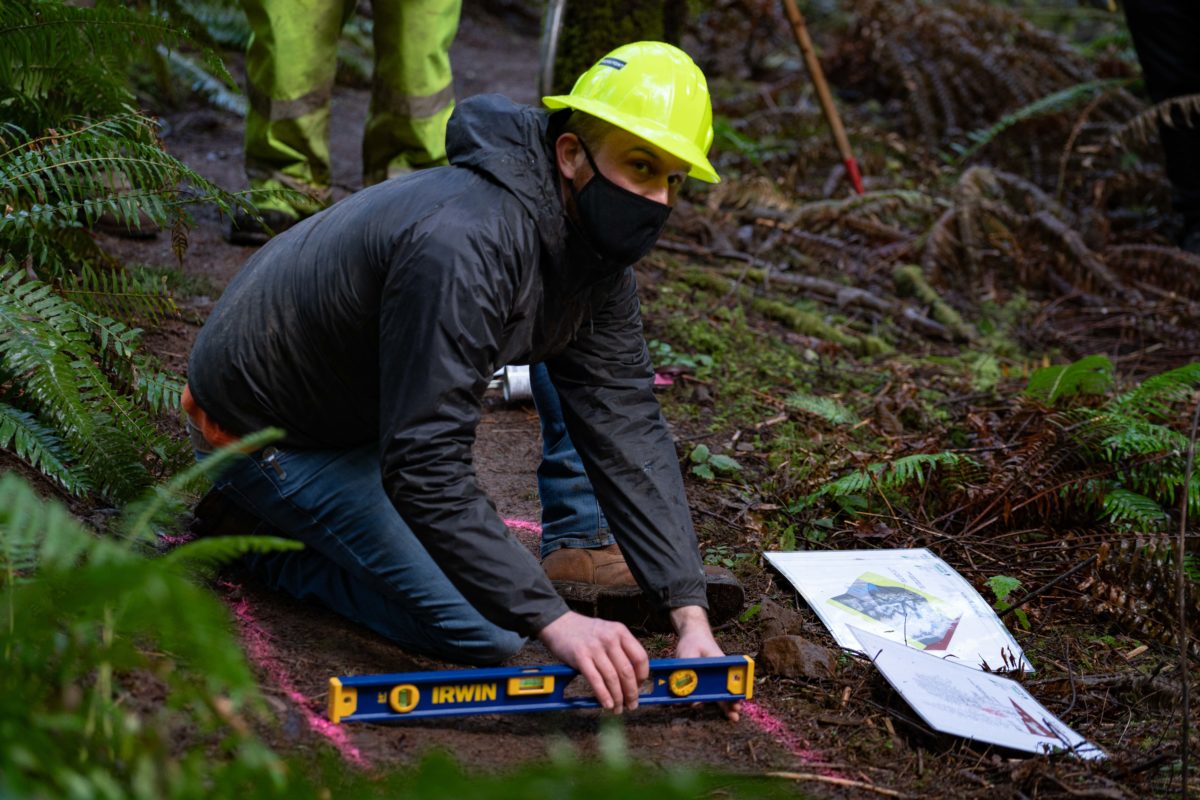
Another essential part of trail maintenance that we put into action was clearing the corridor. This not only includes the apparent tread, or trail, but the entire area around the trail. As trail users, we tend only to pay attention to the trail in front of us. During Trail School, we learn to zoom-out our vision to recognize any hazards that might come into play while on the trail. We look for low hanging dead branches that risk falling or any stubs on trees from broken branches that might cause injury—taking care to remove these hazards with proper pruning techniques while keeping the tree’s health in mind.
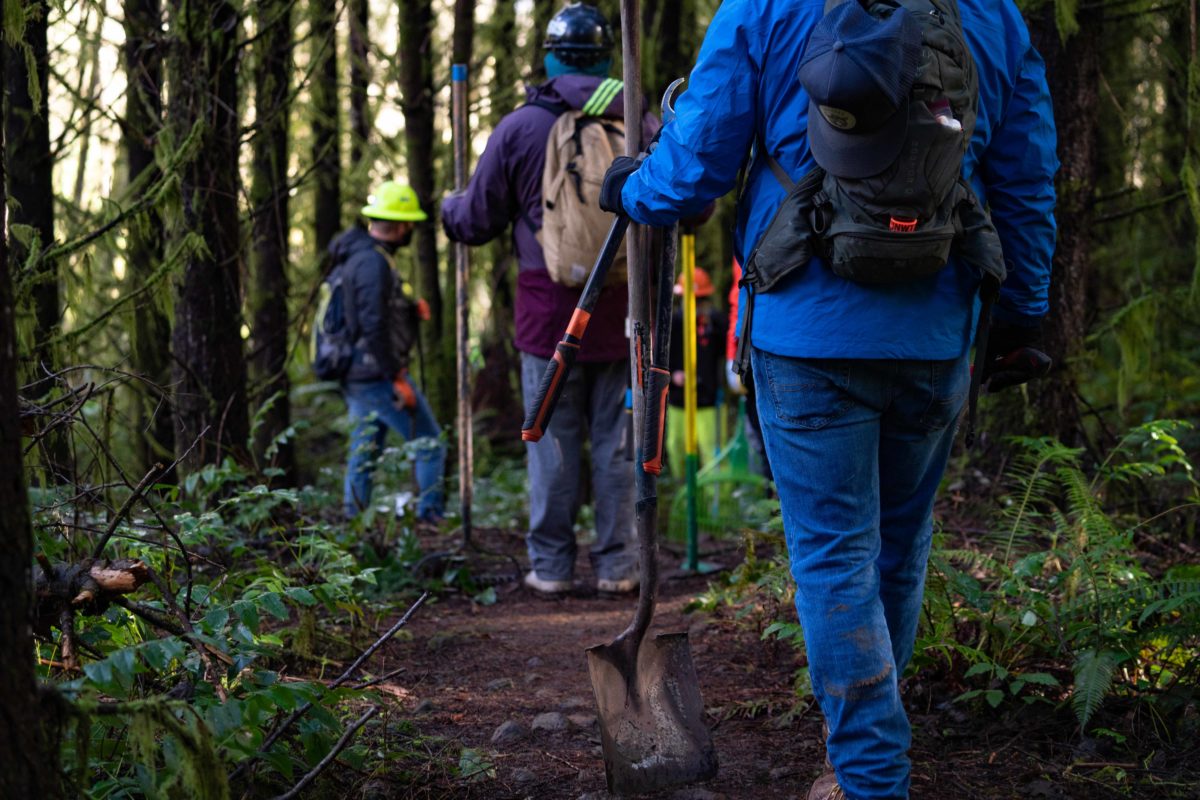
Through a partnership with the Portland Water Bureau, we have learned how mountain bikers and trail builders can help mitigate the spread of invasive plant species by keeping our trail tools and bikes clean when traveling to and from different trail systems. Our Trail Stewards jumped on the opportunity to help do their part by brushing off their tools at the end of the day, leaving any seeds in the same place they originated. This is just one more way we can be good stewards of the land in which we recreate.
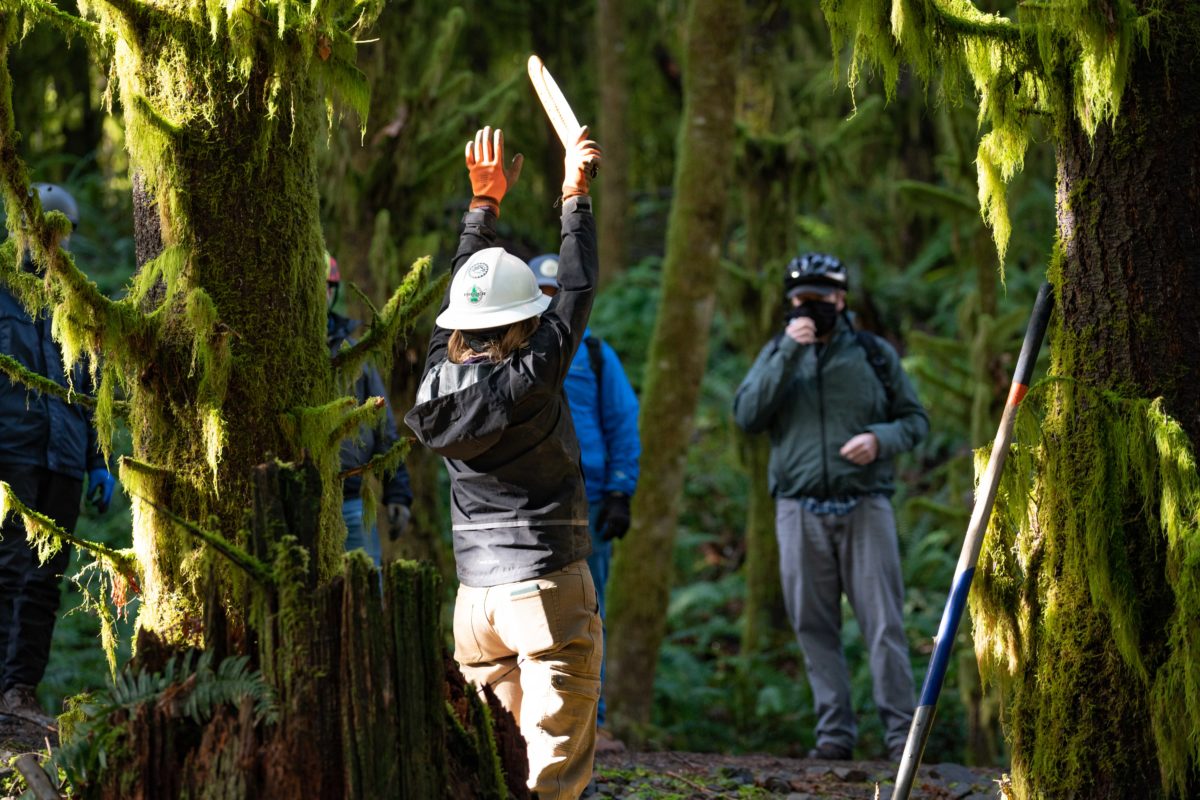
Although the content learned at Trail School is universal across trail systems, NWTA provides stewardship to trails on private, city, state, and national land, which all have varying degrees of restrictions and expectations. Participants are educated on these expectations at the beginning of each work party in a strong effort to maintain a respectful relationship with the landowners/managers.
The Trail Sustainability Institute holds Trail School monthly. If you are interested in participating, keep an eye out on our website and social media pages for your next opportunity. Questions? Contact our Education Director at [email protected].